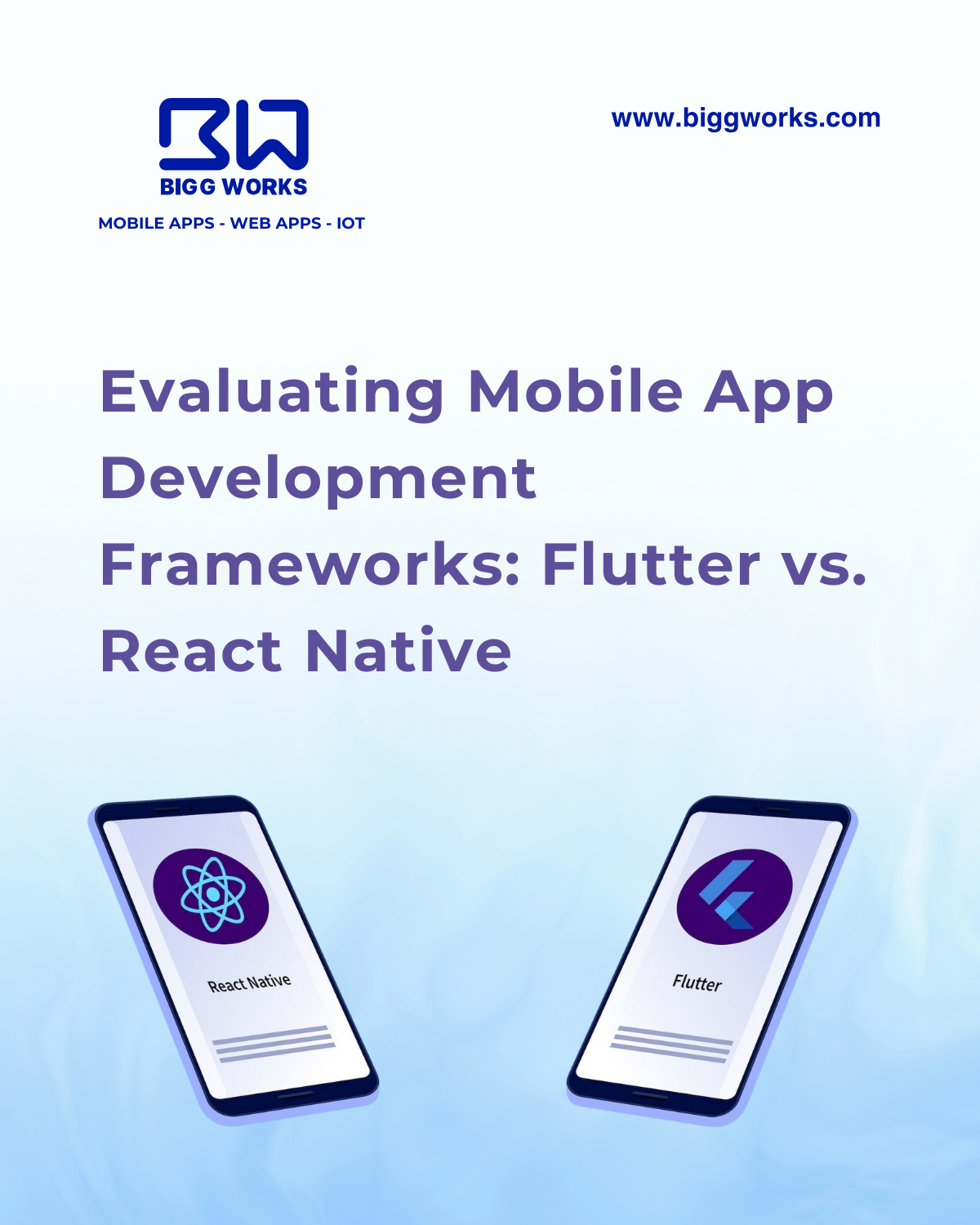Evaluating Mobile App Development Frameworks: Flutter vs. React Native

In the dynamic landscape of mobile app development, choosing the right framework is pivotal. Two contenders, Flutter and React Native, have gained prominence for their efficiency and versatility. This article dives into the comparison of Flutter and React Native, dissecting their features, benefits, and considerations to help developers make informed decisions.
Flutter, developed by Google, offers a comprehensive toolkit for building natively compiled applications for mobile, web, and desktop from a single codebase.
Fast Development:Flutter's hot reload feature accelerates the development process, providing real-time feedback.
Unified UI:Flutter offers a consistent UI across platforms, ensuring a seamless user experience.
Rich Widgets:A vast library of widgets aids in building complex UI elements with ease.
Performance::Flutter's direct compilation to machine code results in high-performance apps.
React Native, created by Facebook, leverages JavaScript to build native mobile apps with a shared codebase, offering rapid development capabilities.
JavaScript Familiarity:Developers well-versed in JavaScript can transition seamlessly to React Native.
Native Components:React Native's use of native components ensures a native-like experience.
Large Community:A robust community supports React Native, providing a wealth of resources.
Third-Party Libraries:Both frameworks have vibrant communities, but React Native's larger user base provides a wealth of resources.
1.Performance:
Flutter:Direct compilation to machine code boosts performance.
React Native:
2.UI/UX:
Flutter:Offers customizable widgets, yielding a uniform experience across platforms.
React Native:Provides native components but may require additional libraries for advanced UI.
3.Development Speed:
Flutter:Hot reload speeds up the development cycle.
React Native:Also offers hot reloading for rapid iterations.
4.Community and Ecosystem:
Flutter:Rapidly growing community with a focus on UI.
React Native:Large, established community with an extensive range of third-party libraries.
5.Language:
Flutter:Uses Dart, which may require developers to learn a new language.
React Native:Relies on JavaScript, widely known and used in web development.
6.Customization:
Flutter:Offers complete customization of UI elements.
React Native:Native modules may be required for specific customizations.
Project Nature:Choose based on the project's complexity, desired features, and target platforms.
Developer Expertise:If your team is well-versed in JavaScript, React Native might be the smoother choice."
Performance Priority:For high-performance apps, Flutter's direct compilation could be advantageous.
Community Support:
The choice between Flutter and React Native hinges on factors like development speed, performance, customization needs, and team expertise. Both frameworks empower developers to build cross-platform mobile apps efficiently. By evaluating project requirements and developer skill sets, developers can make an informed decision, ensuring successful app development that meets both business and user needs.
#MobileAppDevelopment #AppDevelopment #NativeApps #CrossPlatformApps #iOSApps #AndroidApps #PWAs #ReactNative #Flutter #Xamarin #MobileTech #CodeEfficiency #UserExperience #AppSolutions #TechInnovation #UIUXDesign #DigitalExperiences #HybridApps #MobileDev #AppProgramming